<?php
class FileCache
{
public $keyPrefix = '';
public $cachePath = '';
public $cacheFileSuffix = '.bin';
public $directoryLevel = 1;
public $gcProbability = 10;
public $fileMode;
public $dirMode = 0775;
function __construct()
{
$this->cachePath = HT::$cacheRoot.'htcache';
}
function FileCache()
{
$this->__construct();
}$dir: cache file storage directory
$lifetime: cache file validity period, in seconds
$cacheid: cache file path, including file name
$ext: Cache file extension (can be omitted), used here for the convenience of viewing the file
Destructor, check whether the cache directory is valid, default assignment, check Whether the cache is valid, write the cache
$mode == 0, obtain the page content through the browser cache
$mode == 1, use direct assignment (received through the $content parameter) Get the page content by
$mode == 2, get the page content by reading locally (fopen ile_get_contents) (it seems that this method is unnecessary)
All resources on this site are contributed by netizens or reprinted by major download sites. Please check the integrity of the software yourself! All resources on this site are for learning reference only. Please do not use them for commercial purposes. Otherwise, you will be responsible for all consequences! If there is any infringement, please contact us to delete it. Contact information: admin@php.cn
Related Article
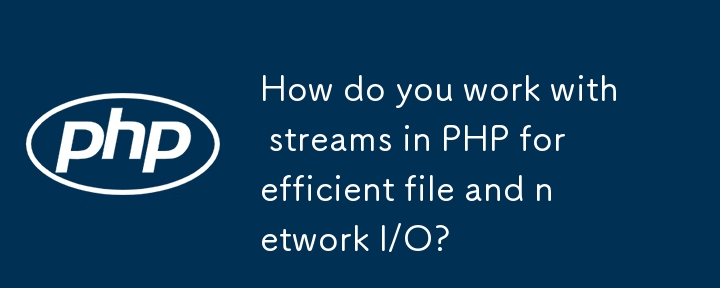 How do you work with streams in PHP for efficient file and network I/O?
How do you work with streams in PHP for efficient file and network I/O?
12 Aug 2025
Use PHP streams to efficiently process files and network I/O, avoiding memory overflow. 1. Use fopen() and other functions to read files or network resources in a stream, and process data block by block or line by line; 2. Use fgets() or fread() to read large files in blocks to control memory usage; 3. Set context options through stream_context_create() to customize the timeout, header, SSL and other parameters of HTTP requests; 4. Use php://wrappers (such as php://input, php://temp) to process input and output and temporary data; 5. Use stream_filter_append() to implement data compression, encoding and other realities
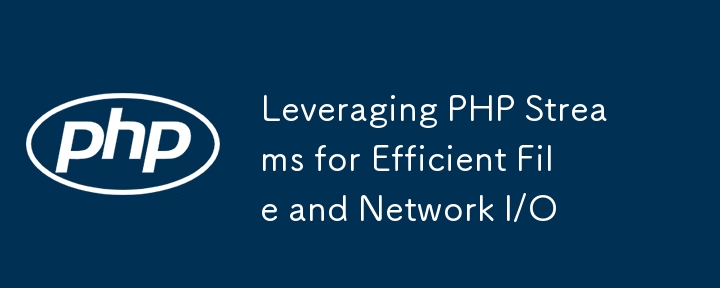 Leveraging PHP Streams for Efficient File and Network I/O
Leveraging PHP Streams for Efficient File and Network I/O
24 Jul 2025
PHPstreamsprovideapowerful,unifiedinterfaceforhandlingfile,network,andmemory-basedI/Oefficiently.1.Insteadofloadingentirefilesintomemorywithfunctionslikefile_get_contents(),usefopen()withstreamstoprocesslargefilesincrementally.2.Leveragestreamwrapper
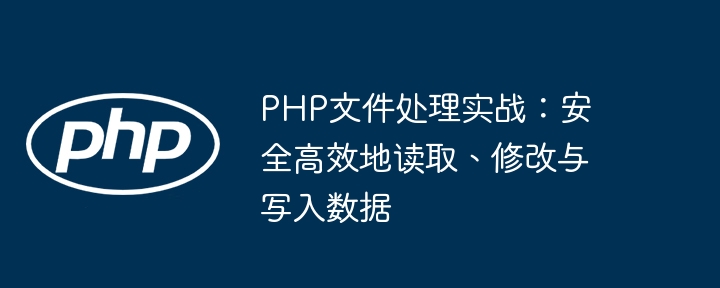 PHP file processing practice: safe and efficient reading, modifying and writing data
PHP file processing practice: safe and efficient reading, modifying and writing data
24 Aug 2025
This tutorial explains the core practices of file read and write operations in PHP in detail. Through a specific grade processing case, it demonstrates how to use the file() function to read file contents into an array, perform data type conversion and business logic processing, and then use fopen() and fwrite() to write the processed data into a new file. It emphasizes the importance of file handle management and error handling, aiming to help developers build robust file operation scripts.
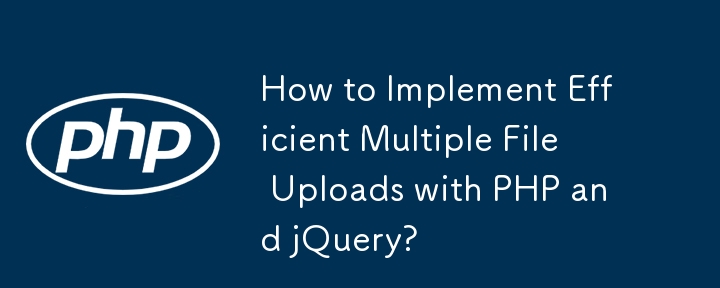 How to Implement Efficient Multiple File Uploads with PHP and jQuery?
How to Implement Efficient Multiple File Uploads with PHP and jQuery?
25 Oct 2024
Uploading Multiple Files Effectively with PHP and jQueryWhile working with PHP, you may encounter situations where you need to upload multiple...
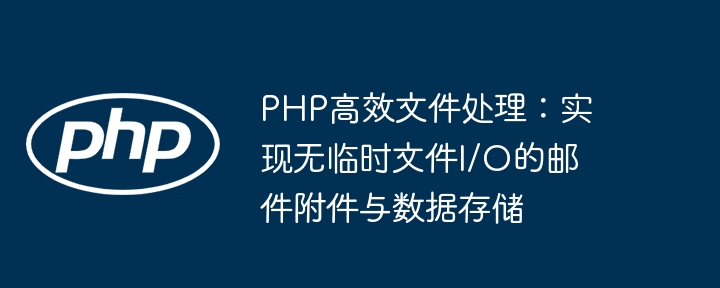 PHP efficient file processing: implement mail attachments and data storage without temporary file I/O
PHP efficient file processing: implement mail attachments and data storage without temporary file I/O
24 Aug 2025
This tutorial explores ways to avoid unnecessary temporary file I/O in PHP for improved performance and security. By storing intermediate data directly in memory variables rather than writing to disk, we can efficiently process PDF files such as Base64 encoded and send or store them as mail attachments to the database, thereby optimizing resource management and simplifying code logic.
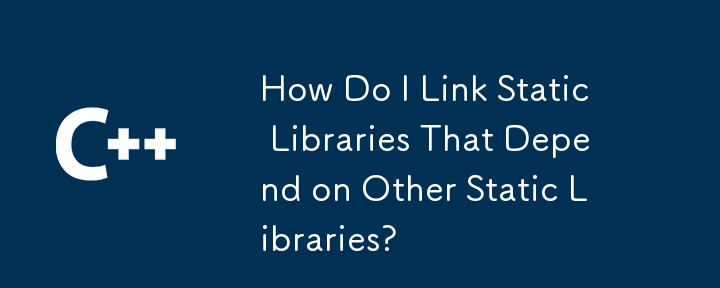 How Do I Link Static Libraries That Depend on Other Static Libraries?
How Do I Link Static Libraries That Depend on Other Static Libraries?
13 Dec 2024
Linking Static Libraries to Other Static Libraries: A Comprehensive ApproachStatic libraries provide a convenient mechanism to package reusable...


Hot Tools

PHP library for dependency injection containers
PHP library for dependency injection containers

A collection of 50 excellent classic PHP algorithms
Classic PHP algorithm, learn excellent ideas and expand your thinking

Small PHP library for optimizing images
Small PHP library for optimizing images




